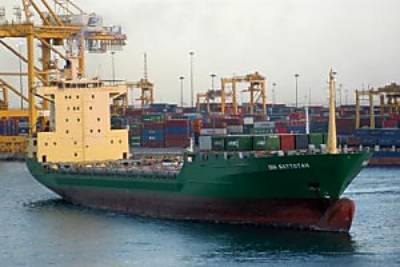WASHINGTON, June 29, 2010 — The United States is working hard to regain Pakistan’s trust after several years without a relationship, but it’s going to take time, the chairman of the Joint Chiefs of Staff said yesterday.
Navy Adm. Mike Mullen made the comments as part of an interview with David Sanger, New York Times chief Washington correspondent, at the inaugural Aspen Security Forum, part of the Aspen Institute, in Colorado.
“It’s not going to happen overnight,” Mullen said of regaining the Pakistanis’ trust. But, he added, “I’ve seen significant commitments in the whole of government.”
Strong relations with Pakistan are important to stamping out terrorism in Afghanistan and Pakistan that threatens the United States, Mullen said, noting that he recently returned from his 18th trip to Pakistan since becoming chairman.
“I believe the leadership in Pakistan recognizes the importance of how it all turns out in Afghanistan,” he said. “We are in agreement that Afghanistan needs to be stable and peaceful. How we get there and the long-term commitment is critical. That’s a huge part of the engagement strategy with Pakistan.”
The U.S. and NATO strategy in Afghanistan is to dismantle the leadership of al-Qaida to make the terrorist group ineffective.
“And the al-Qaida leadership resides in Pakistan,” Mullen said.
Resuming U.S.-Pakistan relations that ended in the 1990s also is important in light of Pakistan’s nuclear arsenal, Mullen said.
“I have raised this issue with the Pakistani military since Day 1,” he said. “These are the most important weapons in the Pakistani arsenal. That is understood by the leadership, and they go to extraordinary efforts to protect and secure them. These are their crown jewels. As much as we are focused on this [terrorism] threat – and the Pakistanis are more than they used to be – they see a threat in India and [having nuclear weapons] is their deterrent. They see this as a huge part of their national security.”
As for efforts by Iran and North Korea to obtain nuclear weapons, Mullen described a different situation. “There isn’t any reason to trust [Iran],” he said. “There is an uncertainty associated with Iran that is very consistent with Iran for a long time.”
North Korea’s desire for nuclear weapons and its increasing aggressiveness — it sank a South Korean naval ship in March, killing 46 sailors — are cause for concern, the chairman said. He noted there’s “a lot of work going on” with the United Nations regarding North Korea.
“It’s difficult to predict what is going to happen next,” he said, adding that he’d put North Korea “at the top of the list” of nuclear proliferation concerns.
It is important to continue sanctions against Iran, North Korea, and other countries that ignore international law on nuclear weapons, Mullen said.
“The totality of the international pressure – political, diplomatic, economic – has continued to be increased over time,” he said. “The overall strategy to really squeeze those proliferators has to continue in every possible way.”
Source:
U.S. Department of Defense
Office of the Assistant Secretary of Defense (Public Affairs)

 von
von 